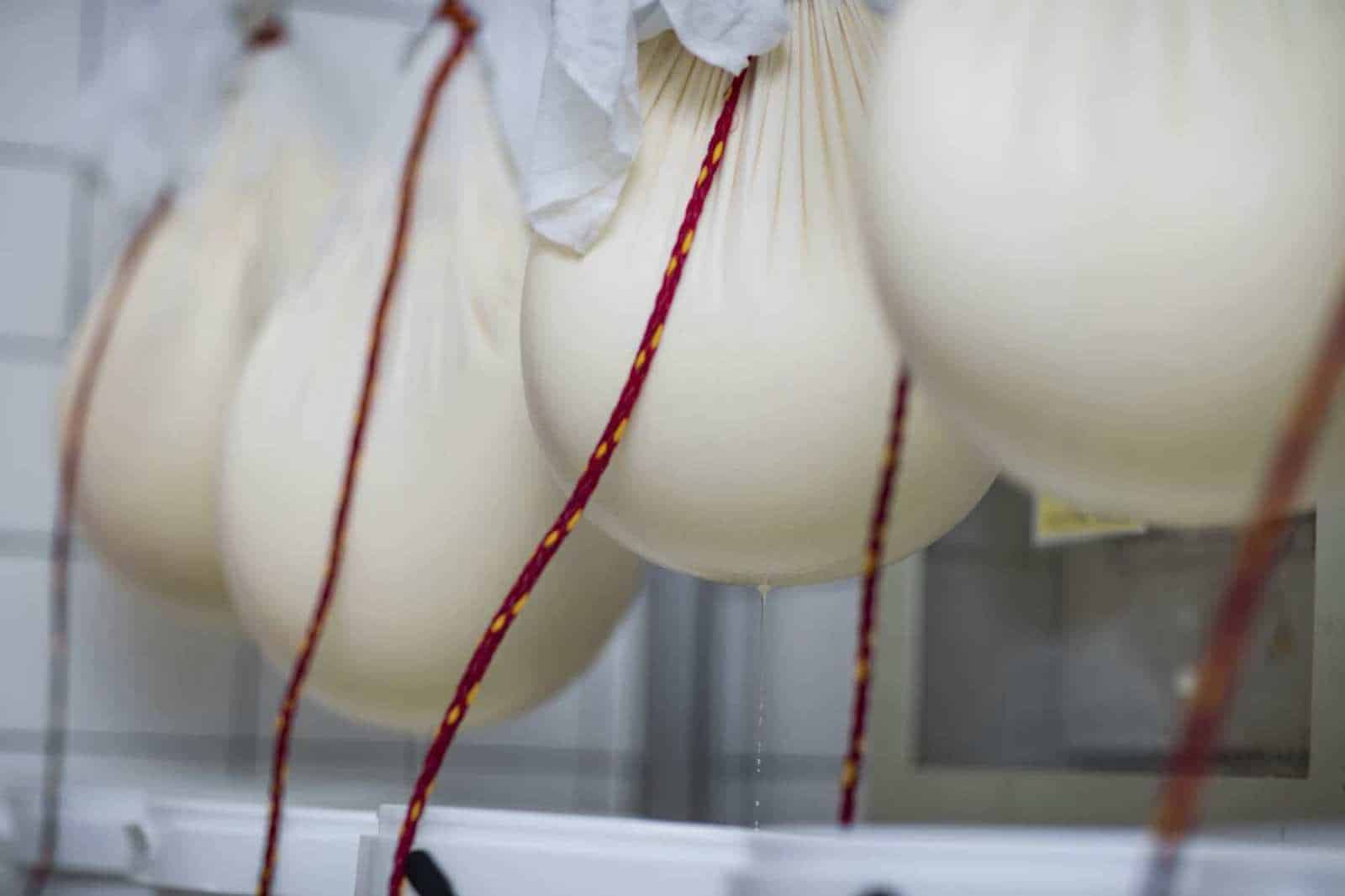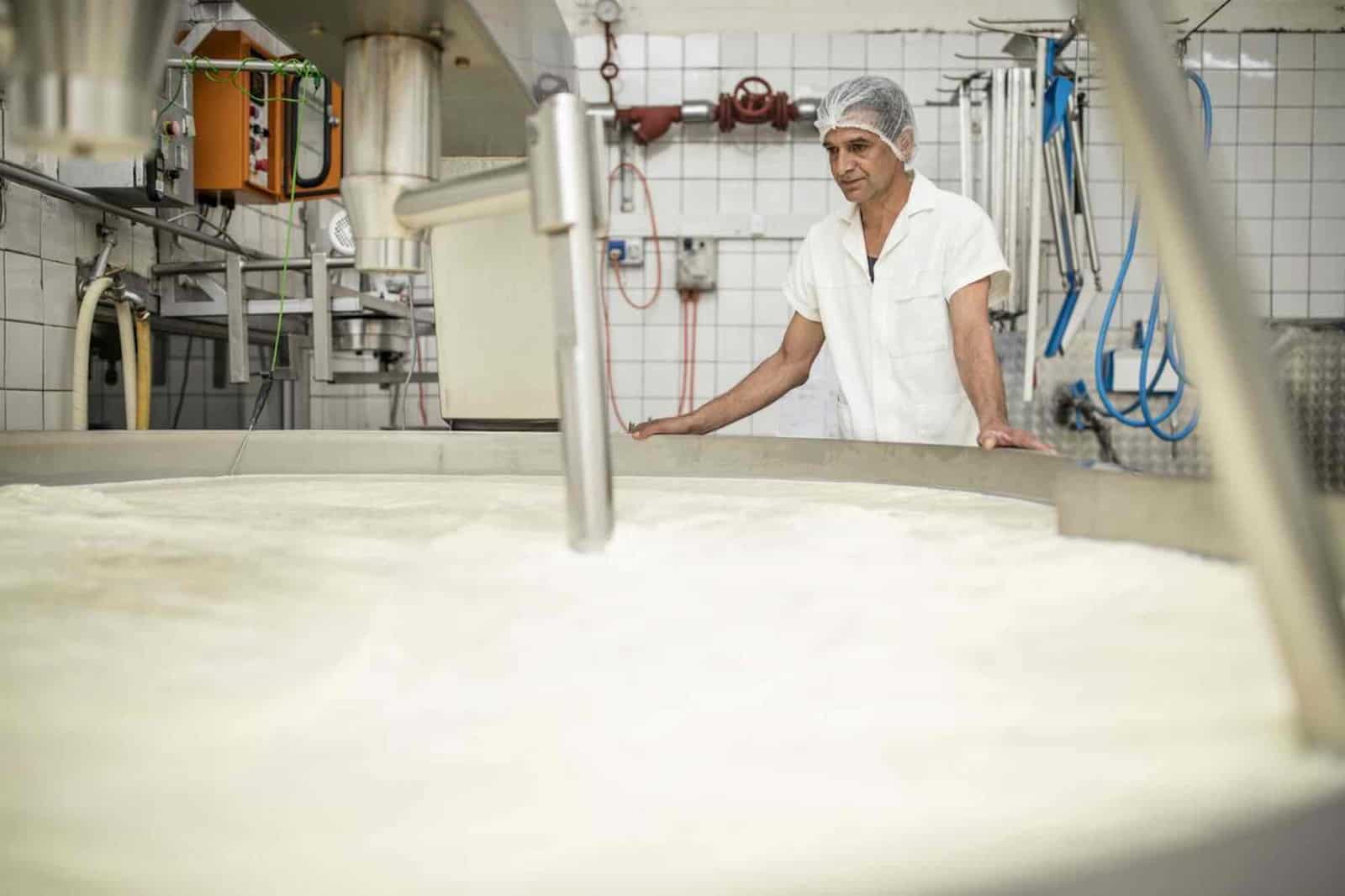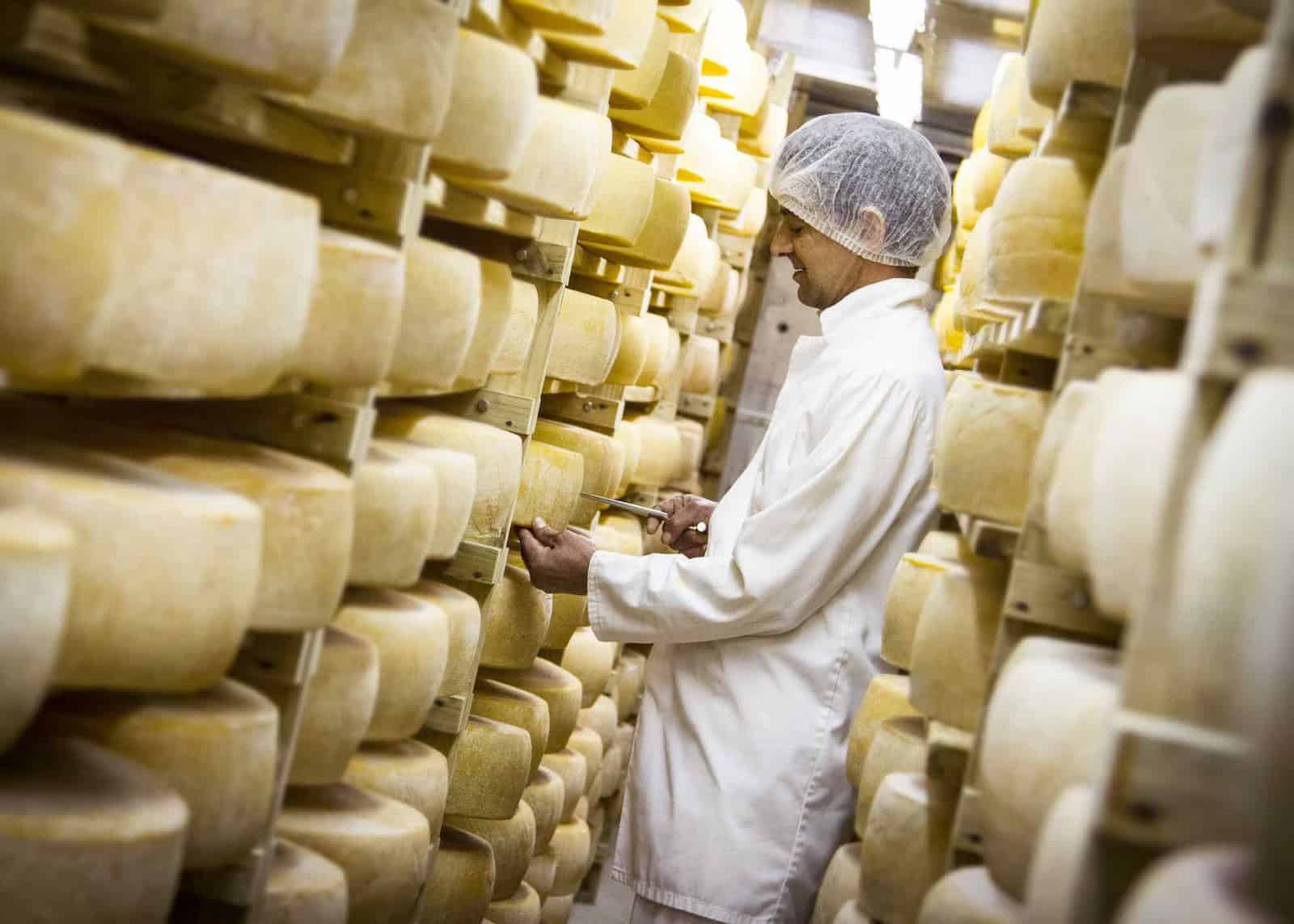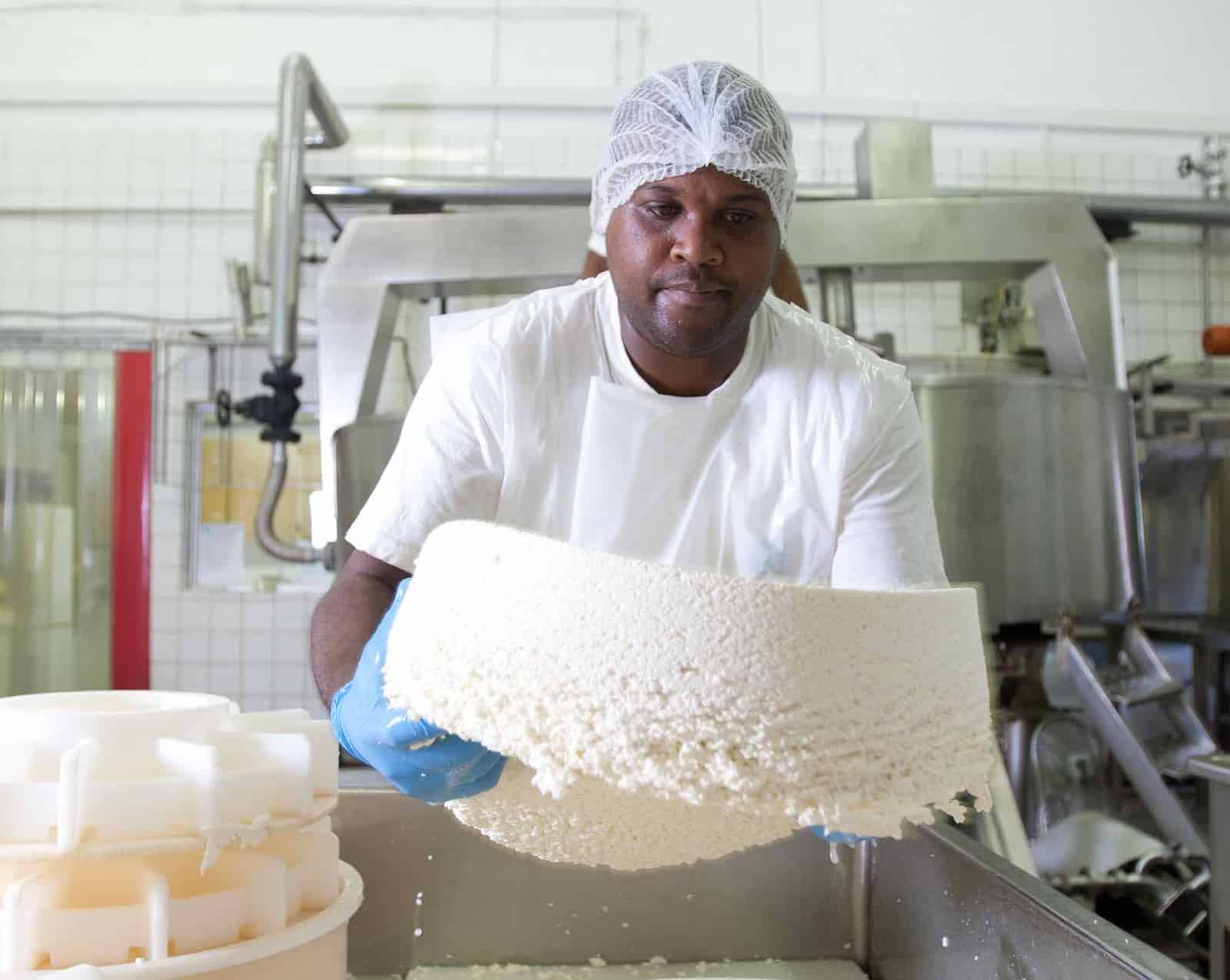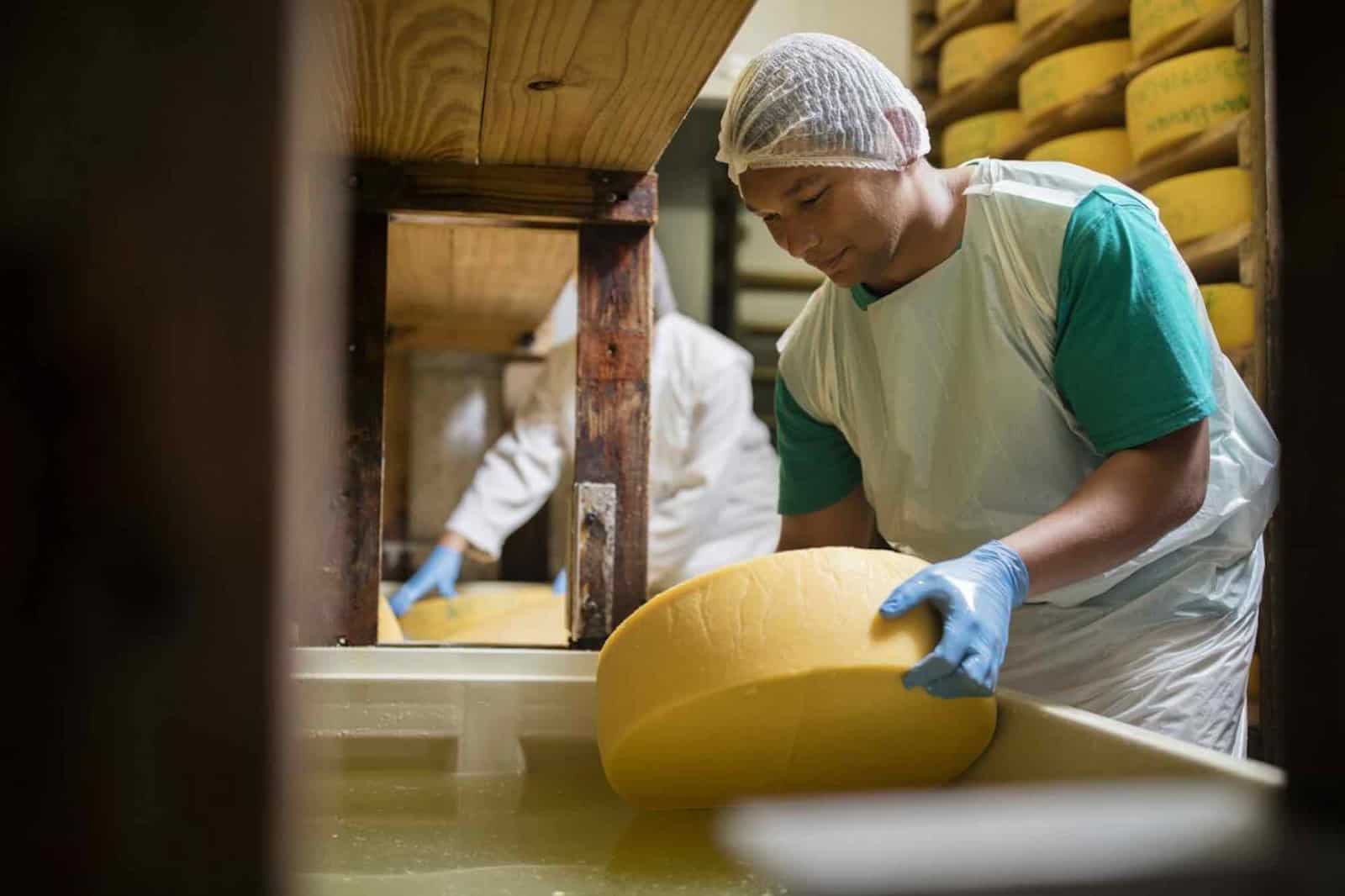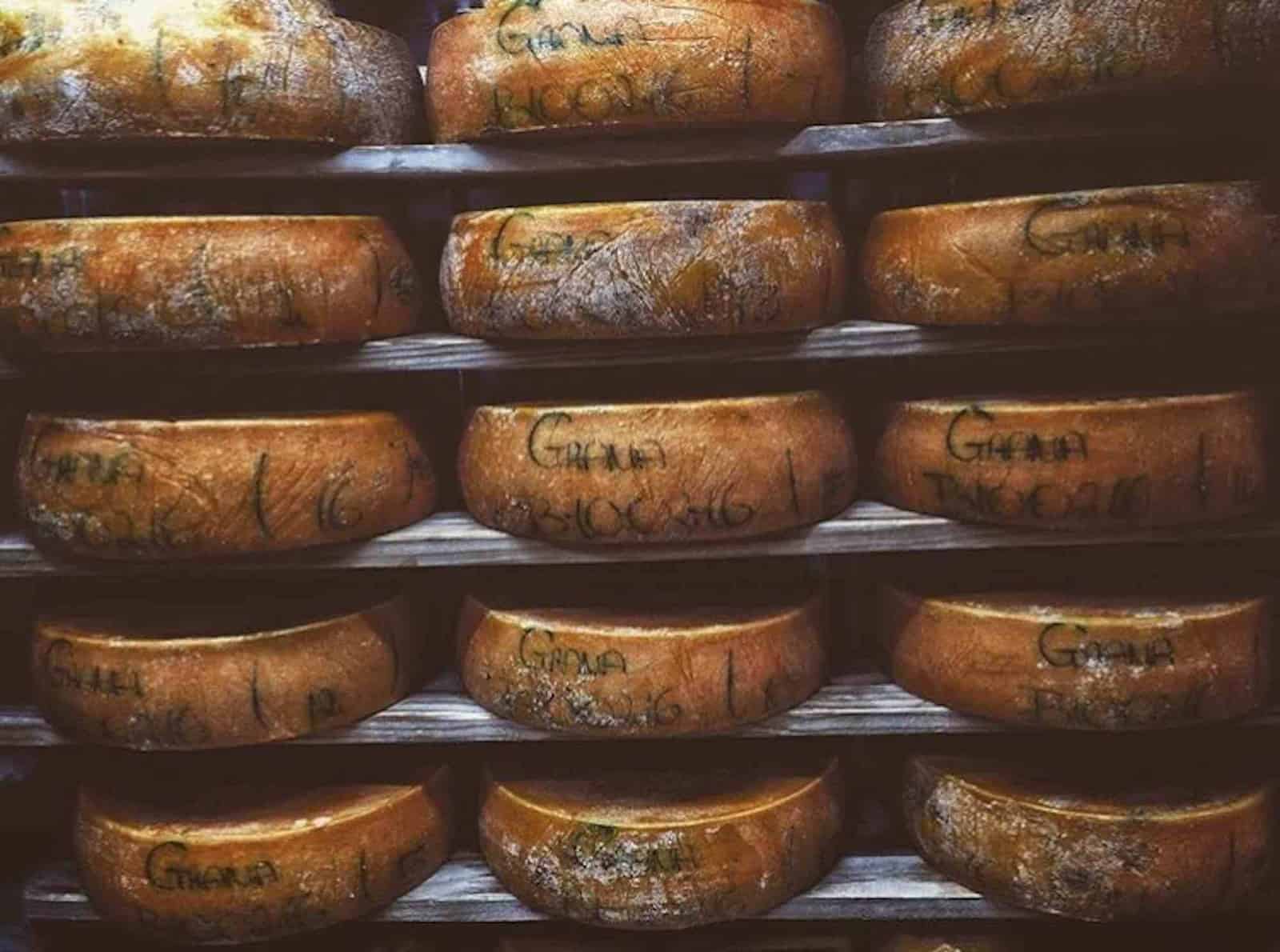
Crafting a quality cheese is a daily lesson: A lesson in perseverance, patience, and people.
I joined South Africa’s Klein River Cheese in June 2015 as a recently qualified food scientist; it was my first (real) job. The experience has been a challenge and a delight. When asked what it’s like to work here, the answer is always the same…
This is a playground for us foodies, as we pursue foods that inspire us all. Each day on the farmstead is different and challenging. Each day I get closer to understanding the intricacies and the whole system. However, a question has been nagging at me since my very first day, nearly three years ago: Is cheesemaking an art, or is it a science?
Every day, the journey starts at 6:00 am. Ricardo, the skillful driver, leaps into the “Melk Lorrie” and makes his way to three dedicated dairy farms near the farmstead. We don’t really know what it is about this region— Stanford, Overberg in South Africa—that makes the milk supreme. Because of this, we try to let nature run its own course.
Matthys, the pasteurizer operator, patiently awaits Ricardo’s arrival. As the truck trundles into the farmstead, Matthys fires up his pasteurizer and eagerly prepares the various testing kits. It’s pure science as Matthys and Wessel, the dairy manager, assess the raw milk using crucial tests to ensure its quality. He tests the pH, phosphates, fat, and protein, and checks for antibiotics and soap residue, along with many other tests. Each batch of milk is tested and retested before it even enters the factory.
Jacko van Beulen, the cheesemaker extraordinaire, has been making our cheese for 25 years, since day one. For Jacko, who has processed more than 15 million liters of milk at Klein River Cheese, it’s an art. He merely looks at the milk and instinctively understands its quality and freshness. I have spent hours with him trying to see what he sees. He explains and explains and extols the virtues of the milk—Jacko, I try, but I cannot see what you see.
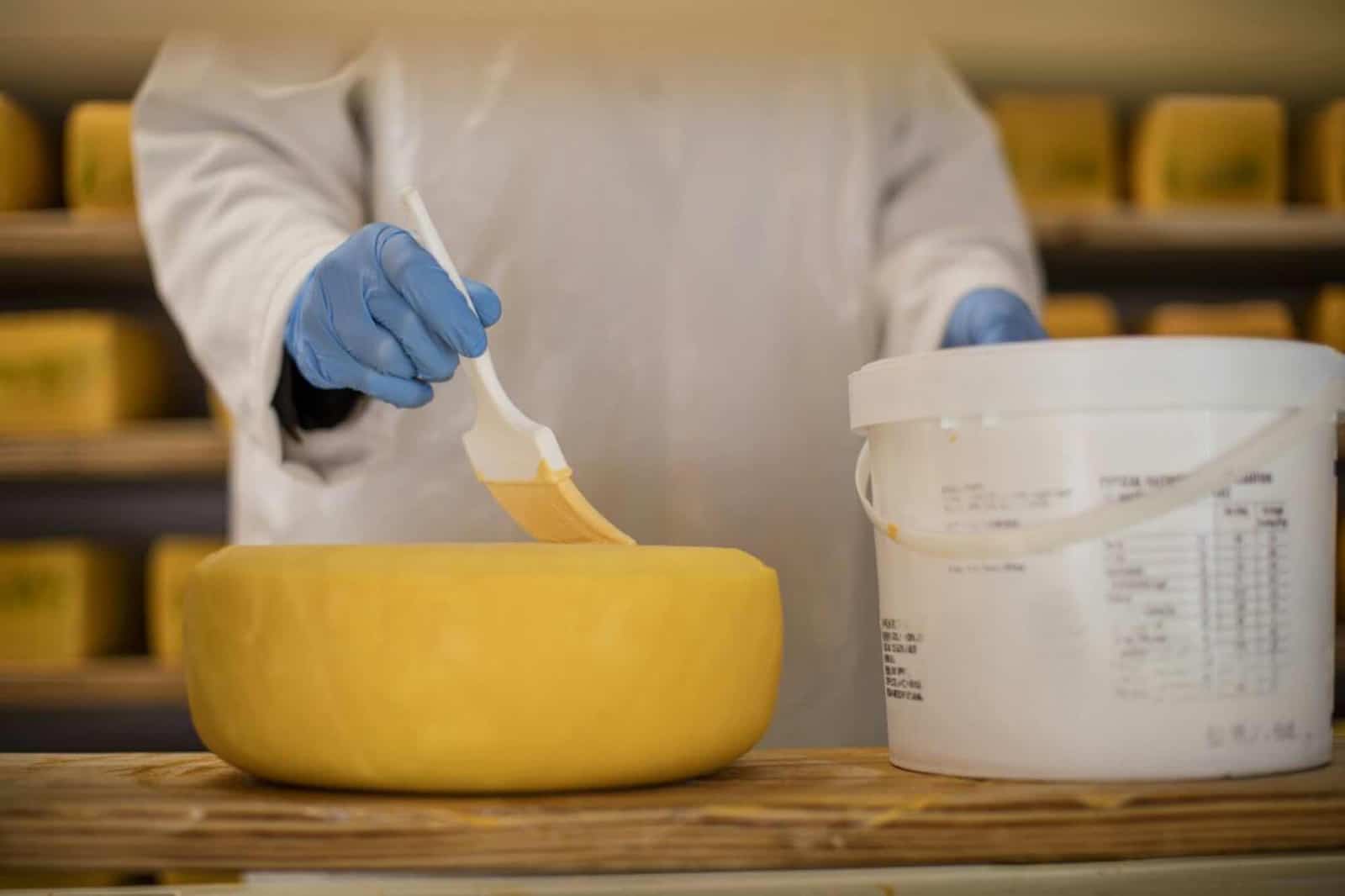
The magic fermentation and renneting is enchanting. The transformation of milk into curd and whey is extraordinary. The cheesemaker, the staff, and I still delight daily in the delicate milk-to-cheese alchemy.
The final crucial step in the process is affinage or cheese maturation. This is where art and science come together. We create four styles and 11 types of cheese in 10 maturation rooms. Each maturation room has a very specific, controlled, and measured temperature, humidity, and airflow. Specific strains of yeast and mold inhabit the cheeses that sit on raw wooden shelves.There is a multiverse of cultures and microbes in the maturation rooms and within the cheese. Still, before we release each batch, we test for bad bacteria. Thankfully and especially in these difficult times, our cheese is clean.
I have learned that the key step in creating all the wonderful flavors, textures, and aromas in our cheese is, quite simply, time——which brings out the scientific and artistic benefits. Our affineurs, Stompie, Clement, and Marco, have collectively been with us for nearly 60 years. They brush and care for each cheese daily. The secret for a good tasting cheese really is care and patience.
Even with all of our experience, factors beyond our control suggests that maybe we don’t really know how this all works. But, it does. If it all comes together, then we are fine and we have done our craft. Different cheesemakers have different skills, and each is sharing their unique culture. And we love to share a manifestation of our culture with our consumers.
So, the question remains…Is cheesemaking an art, or is cheesemaking a science? It’s a delicious fear not knowing which one it is.
A version of this piece originally appeared in Klein River Cheese’s newsletter. Thanks to Klein River for sharing!


